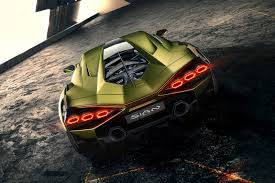
Breaking News
 Tucker Carlson Dines With Zacchaeus
Tucker Carlson Dines With Zacchaeus
 My Thoughts on the Conservative Civil War Against Tucker Carlson!? Awaken with JP
My Thoughts on the Conservative Civil War Against Tucker Carlson!? Awaken with JP
 Israel ARRESTS Lawyer Prosecuting IDF Soldiers For R@ping Palestinian Prisoners!
Israel ARRESTS Lawyer Prosecuting IDF Soldiers For R@ping Palestinian Prisoners!
Top Tech News
 HUGE 32kWh LiFePO4 DIY Battery w/ 628Ah Cells! 90 Minute Build
HUGE 32kWh LiFePO4 DIY Battery w/ 628Ah Cells! 90 Minute Build
 What Has Bitcoin Become 17 Years After Satoshi Nakamoto Published The Whitepaper?
What Has Bitcoin Become 17 Years After Satoshi Nakamoto Published The Whitepaper?
 Japan just injected artificial blood into a human. No blood type needed. No refrigeration.
Japan just injected artificial blood into a human. No blood type needed. No refrigeration.
 The 6 Best LLM Tools To Run Models Locally
The 6 Best LLM Tools To Run Models Locally
 Testing My First Sodium-Ion Solar Battery
Testing My First Sodium-Ion Solar Battery
 A man once paralyzed from the waist down now stands on his own, not with machines or wires,...
A man once paralyzed from the waist down now stands on his own, not with machines or wires,...
 Review: Thumb-sized thermal camera turns your phone into a smart tool
Review: Thumb-sized thermal camera turns your phone into a smart tool
 Army To Bring Nuclear Microreactors To Its Bases By 2028
Army To Bring Nuclear Microreactors To Its Bases By 2028
 Nissan Says It's On Track For Solid-State Batteries That Double EV Range By 2028
Nissan Says It's On Track For Solid-State Batteries That Double EV Range By 2028
Lamborghini Sián: The world's first supercapacitor-hybrid supercar

Supercapacitors, as opposed to batteries, offer a unique set of advantages and drawbacks to automakers. They have enormous charge and discharge rates, meaning they can put out huge amounts of power, charge up almost instantly, and pull in a much larger amount of energy through things like regenerative braking, in which a battery's ability to accept charge becomes a limiting factor. They also don't deteriorate over time, maintaining their performance over millions of cycles.
On the other hand, their energy density is terrible in comparison to lithium-ion batteries. Even cutting-edge ultracapacitors like those from Nawa in France can only store about a quarter of the energy per volume that a regular lithium battery can – and lithium is far from energy dense itself in comparison to hydrogen or hydrocarbon fuels. They also stink at long-term energy storage, steadily leaking away what they've got stored up over the course of maybe a week or two.

 LET THEM EAT CHEETOS
LET THEM EAT CHEETOS
 Carbon based computers that run on iron
Carbon based computers that run on iron

